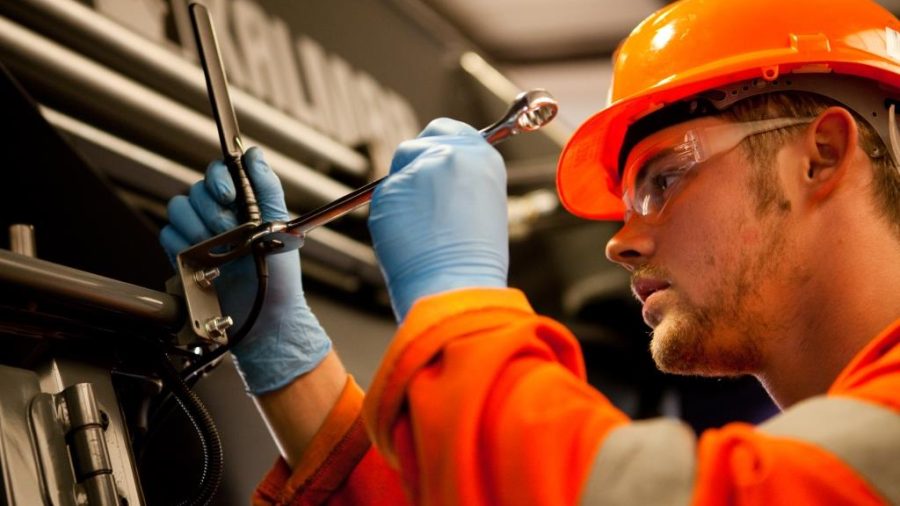
PD Ports, one of the UK’s major port groups, is calling on other employers to help plug the engineering skills gap as the Company celebrates 15 years of apprenticeships.
To mark Tomorrow’s Engineers Week, (6–10 November), PD Ports is highlighting the value young people can bring to any business after the latest stats from the Department for Education revealed a 61% year-on-year drop in new apprenticeships.
Last month PD Ports welcomed a further three new engineering apprentices. In an area renowned for its industrial heritage, the port operator is very proud of its commitment to investing in the training and development of young people but urges other businesses to follow suit.
Russ McCallion, HR Director at PD Ports, said apprentices are the lifeblood of business growth and can deliver real benefits to any organisation but claimed more employers need to invest in young people, plugging the 186,000 people needed annually with engineering skills by 2040, according to projections from the University of Warwick and EngineeringUK.
PD Ports has brought on three engineering apprentices James Toward (20), Jack Beckley (16) and Bradley Jenkins (19) at its Teesport site, which will see them work at one of the UK’s deepest water ports.
Before the end of 2017, PD Ports will recruit a further 13 apprentices across multiple disciplines including engineering, human resources, accountancy and transport & logistics.
Between May and July, the number of new apprentices across the UK fell from 113,000 to 43,000 year-on-year despite the introduction of The Apprenticeship Levy, with larger businesses not appreciating the benefits.
Mr McCallion, said: “52% of our engineering team started their career with PD Ports as an apprentice, which is a very clear demonstration of our long-term commitment to providing young people with high quality career opportunities. Skilled apprentices are vital building blocks in a progressive, innovative and resilient business. We have some exceptionally talented individuals at PD Ports.
“We are using Tomorrow’s Engineers Week as a platform to highlight the importance of apprenticeships and to urge businesses across multiple sectors to support the next generation of young people. The introduction of the levy is still very much in its infancy so I would be cautious of reading too much into the statistics at this early stage but we do need to see greater engagement with employers and a simplified process to access the benefits of the levy.”
According to a YouGov poll in August, just 8% of students aged 15-18 attending college in 2016/17 were advised to seek work-based apprenticeships while 85% were encouraged to go into further education.
The Apprenticeship Levy was introduced by the government on 6 April 2017 to help fund three million new apprenticeships by 2020 and requires all employers of an annual pay bill of £3million upwards to contribute 0.5% of this to help fund apprentice and training schemes in the UK.
